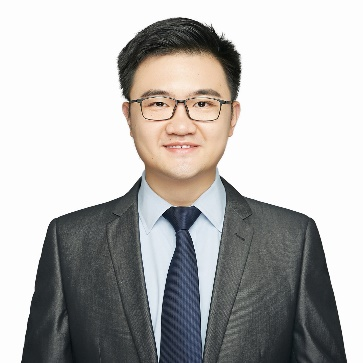
Title:
Data-Driven Techniques for Subsynchronous Oscillation Localization and Mitigation in Wind-integrated Power System
Abstract:
The commitment made by China at the 75th United Nations General Assembly to achieve 'carbon peaking ' and 'carbon neutrality' has elevated the development of clean energy to a new strategic level. The harnessing and utilization of wind energy have emerged as a crucial strategy in the national energy revolution. Wind power has become an integral component of the power system, and its penetration rate is expected to increase significantly.
Subsynchronous Oscillation (SSO) is a prominent stability issue in wind-integrated power systems, characterized by multiple sources, diverse modes, time-varying frequencies, and intricate influencing factors. Several incidents of SSO have been reported in wind farms located in various regions, including Texas and Buffalo Ridge in the United States, Gu Yuan area in North China, Hami region in Xinjiang, and Nan'ao in Guangdong, China. SSO incidents may result in damage to renewable energy equipment, widespread disconnection of renewable energy sources, fatigue in the shaft system of thermal power units leading to generator shaft fractures, or even trigger converter tripping, causing the shutdown of HVDC systems. In extreme cases, it can lead to cascading failures and major power outages. These pose a significant threat to the safe and stable operation of wind-integrated power systems and require heightened attention. This report primarily outlines the research advancements achieved by our research team in the domain of data-driven techniques for subsynchronous oscillation localization and mitigation in wind-integrated power systems.
Biography:
吴熙(1987.2-),男,副教授,博士生导师,东南大学电力工程系主任,东南大学“至善青年学者”(A层次),中国机械工业教育协会电力系统及其自动化学科教学委员会副主任委员,IEEE PES技术委员会(中国)常务理事,美国伊利诺伊理工大学访问学者。主要研究方向为电力系统宽频振荡定位及抑制技术、FACTS建模与优化控制。主持国家自然科学基金2项,江苏省自然科学基金2项,国家电网公司总部科技项目2项,及20余项横向课题。在IEEE Transactions on Power Systems、IEEE Transactions on Sustainable Energy、中国电机工程学报等国内外知名刊物发表论文30余篇。获江苏省科学技术奖一等奖和二等奖各1项,江西省科学技术进步奖三等奖1项。



